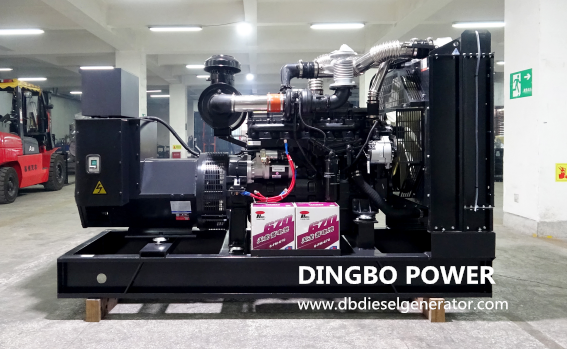Electricity supply becomes increasingly important now and diesel generator sets play an indispensable role in various industries as the main power source or a backup power supply. Diesel generators have become the first choice of many enterprises and individuals due to their reliability and excellent performance. However, many users don’t pay attention to the generator maintenance and service, leading to the reduced performance, frequent malfunctions and even premature failures of generator sets. So how to prolong the lifespan of your diesel generator while improving efficiency? Here are several tips for you.
1. Place your diesel generator in a suitable location
It’s important to keep your generator in the right place. Diesel generator sets should be placed in a well-ventilated and dry area and be kept away from flammable and explosive materials. Additionally, they should be placed on a solid and level surface to reduce the vibration and noise generated during the operation of the unit. Most manufacturers will have manufacturer's recommendations on generator placement.

2. Proper generator usage
Using the generator properly is crucial for keeping it in good working condition. The generator should not be overloaded. Before starting the generator set, make it a routine to perform visual inspections. Check the engine oil level, coolant level, fuel level and ensure sufficient supply of oil, coolant and fuel. Check if the battery voltage is normal and check all connections for looseness or corrosion.
Review the manufacturer guidelines and follow the instructions for operation. Avoid frequent startup or prolonged idle operation. Before stopping your diesel generator, gradually remove the load and decrease the speed to idle state, then shut down the generator.
3. Load management
Load management is the process of balancing the supply of electricity on the generator with the electrical load by adjusting or controlling the load. When using your generator, you should avoid overloading the generator for a long time. Overloading your generator can cause undue strain on the engine and other components, leading to damage or failure. Thus, you need to check the load conditions regularly and adjust the load distribution as necessary.
4. Regular maintenance
Regular maintenance is essential to maximize the performance of your diesel generator and prolong its lifespan. Keep your generator clean by regularly cleaning the exterior of the generator and the internal components such as the fuel injectors, fuel pump, and combustion chamber. Change or replace the aging or damaged parts in a timely manner. Meanwhile, check for any signs of leaks, loose connections, or corrosion, ensuring the generator set is in good condition.
The lubrication system is very important for the diesel generator set. The quality of the oil should be checked regularly to ensure that the cleanliness and viscosity of the oil meet the requirements. Low-quality fuels can cause build-up or clogging in the generator’s air filter. The oil should be changed regularly and the oil filter should be cleaned and replaced periodically. In addition, the tightness and working condition of the oil pump, oil pipe and other components should be checked to ensure the normal operation of the lubrication system. Every six to 12 months, a generator professional should conduct a detailed inspection.
Suitable location, proper usage, load management, and regular maintenance are all essential steps in extending the lifespan of your diesel generator. Proper care of the generator will ensure that it runs efficiently and safely and will save you money on expensive repairs. A well-maintained diesel generator will provide you with years of reliable service, ensuring that you have power when you need it. Don’t hesitate to reach out for any further information or assistance regarding to diesel generator sets. Contact us at dingbo@dieselgeneratortech.com, and we will gladly help you.
Comments
Post a Comment